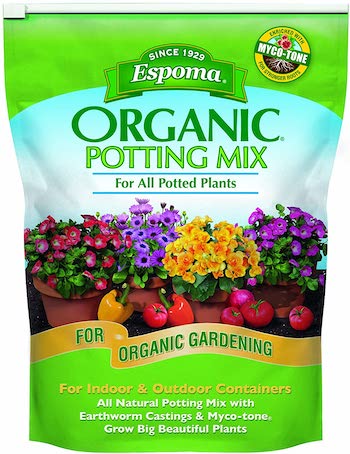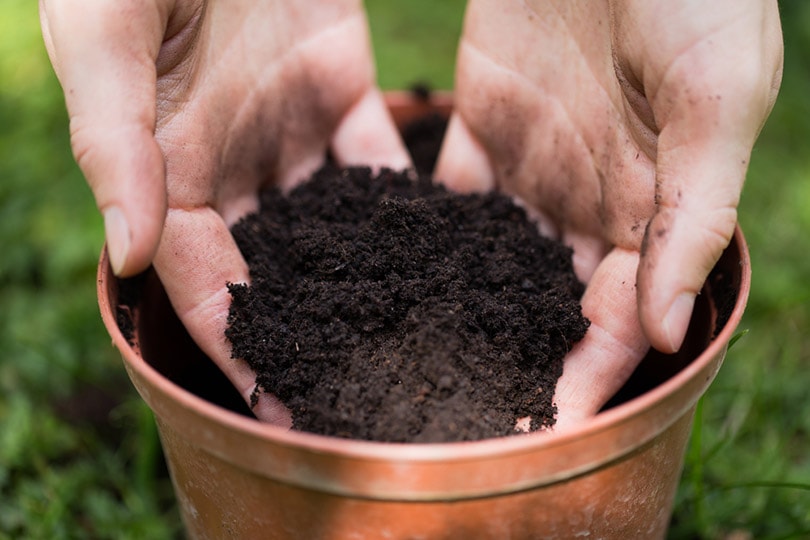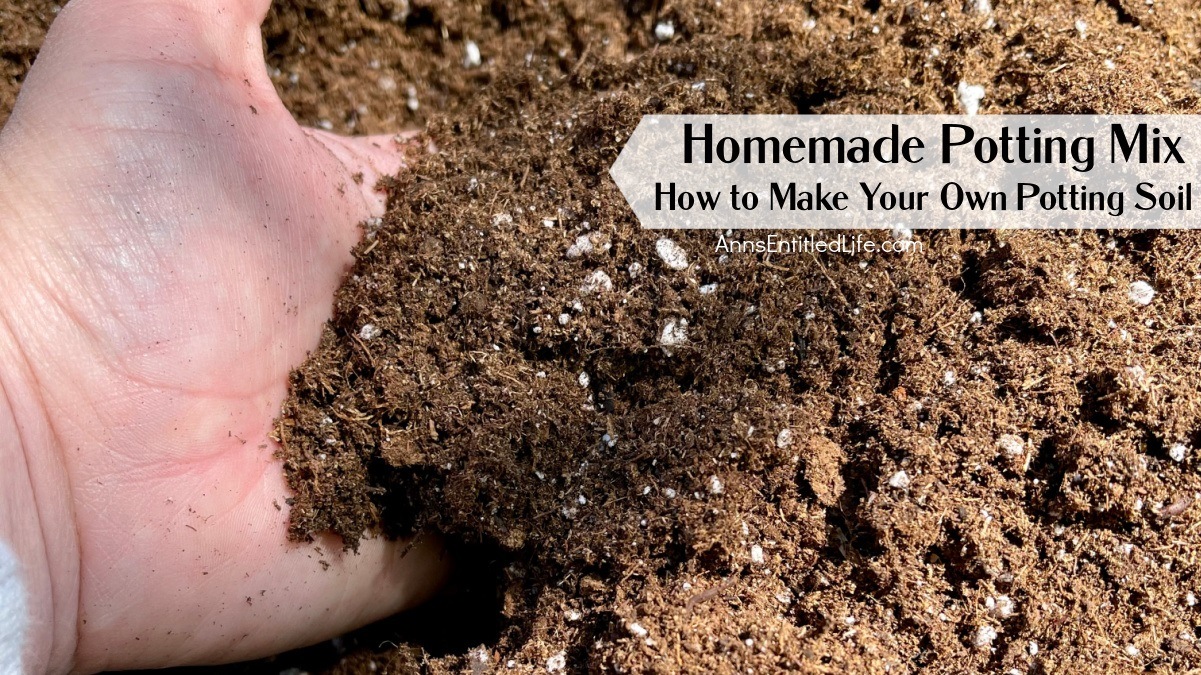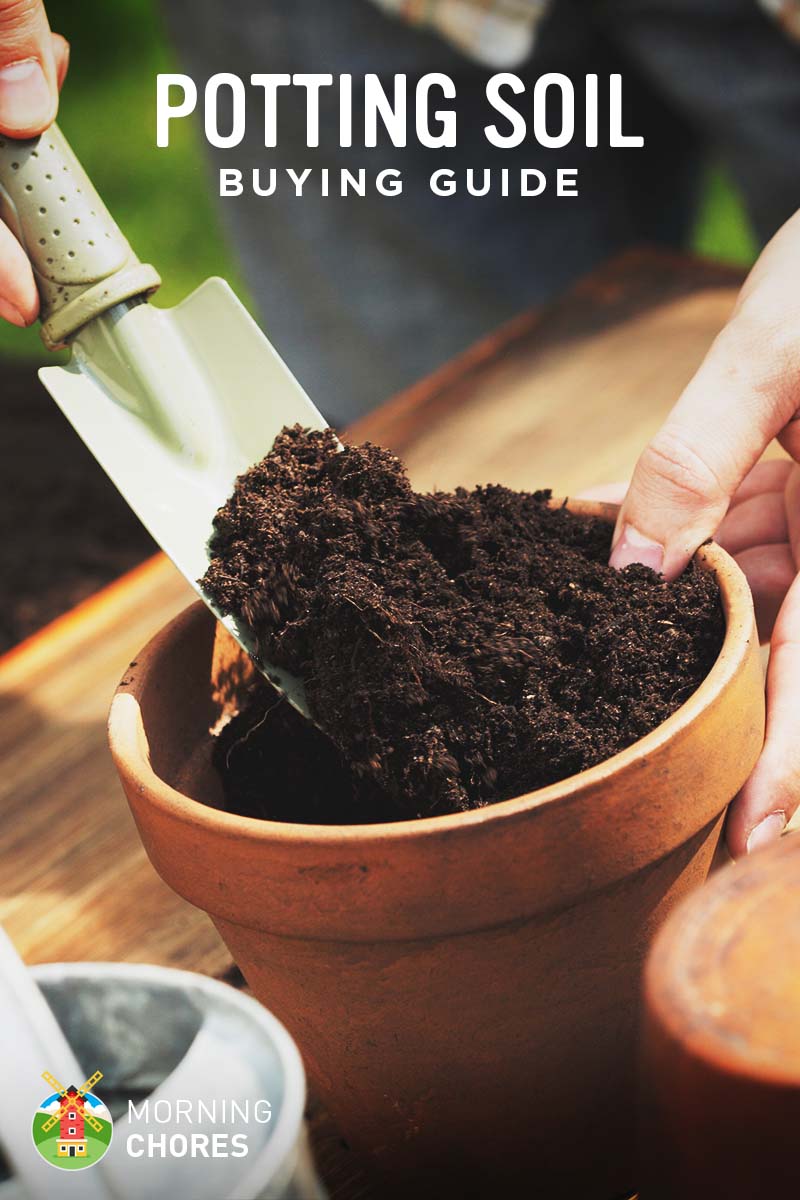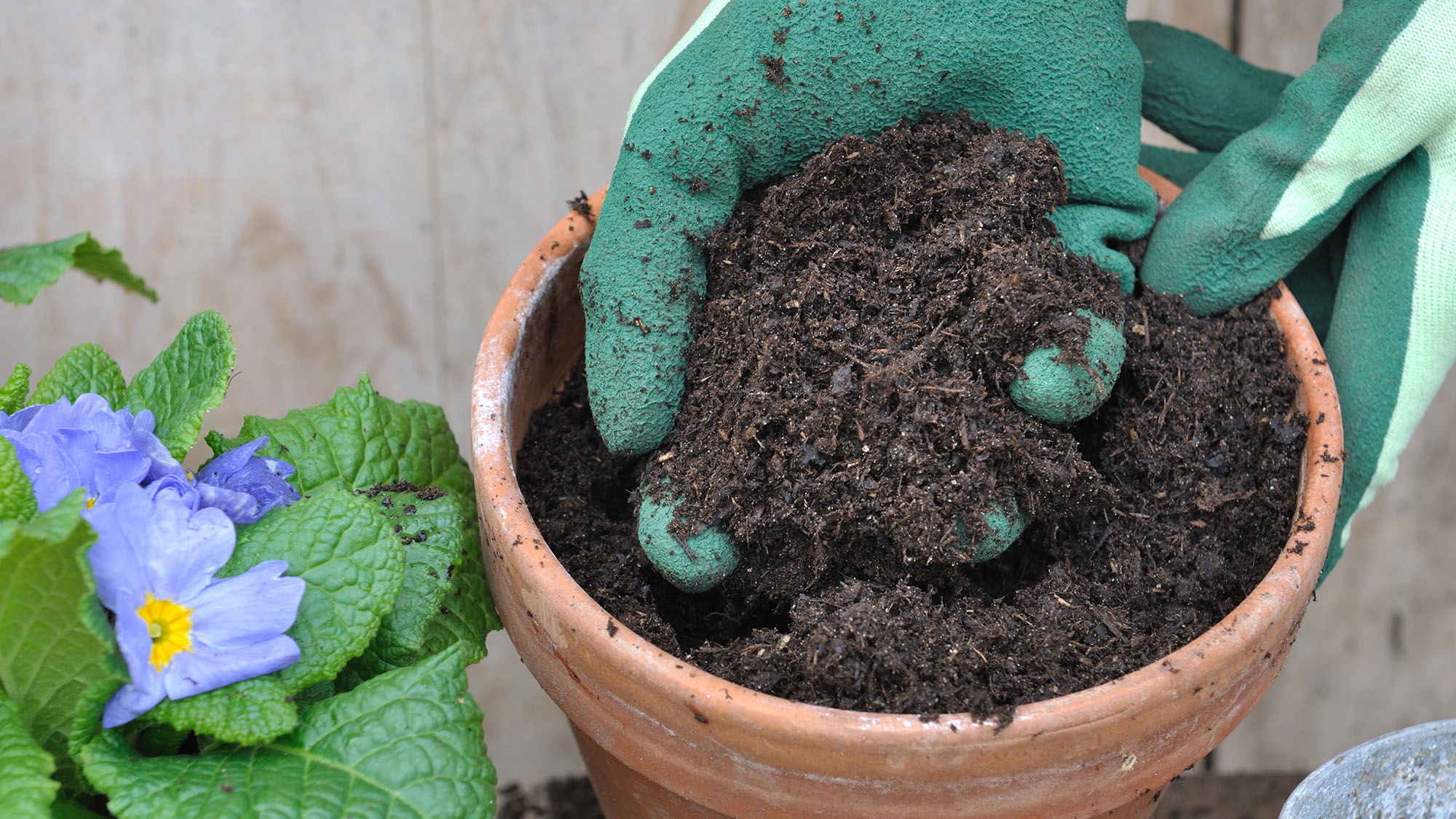What Makes a Great Potting Soil Mix for Vegetables?
A great potting soil mix for vegetables is one that is carefully formulated to meet the unique needs of vegetable plants. The ideal potting soil mix should have a balanced blend of ingredients that provide optimal drainage, aeration, and water-holding capacity, as well as essential nutrients and micronutrients.
One of the most important ingredients in a potting soil mix for vegetables is organic matter. Organic matter, such as compost or well-rotted manure, helps to improve soil structure, increase the soil’s water-holding capacity, and provide a source of nutrients for plants. A good potting soil mix should contain a minimum of 20% organic matter.
Another critical factor in a potting soil mix for vegetables is pH balance. Most vegetable plants prefer a slightly acidic to neutral soil pH, ranging from 6.0 to 7.0. A potting soil mix that is too acidic or too alkaline can lead to nutrient deficiencies and poor plant growth.
In addition to organic matter and pH balance, a great potting soil mix for vegetables should also contain a balanced blend of nutrients. This includes macronutrients such as nitrogen, phosphorus, and potassium, as well as micronutrients such as calcium, magnesium, and sulfur. A good potting soil mix should also contain beneficial microorganisms, such as mycorrhizal fungi, that help to promote healthy plant growth.
Some other key characteristics of a great potting soil mix for vegetables include good drainage, aeration, and water-holding capacity. A potting soil mix that is too dense or waterlogged can lead to root rot and poor plant growth, while a mix that is too dry can lead to nutrient deficiencies and poor plant growth.
By understanding the key ingredients and characteristics of a great potting soil mix for vegetables, gardeners can make informed decisions when selecting a potting soil mix for their vegetable garden. Whether you’re growing tomatoes, peppers, or lettuce, a high-quality potting soil mix can help to promote healthy plant growth and maximize your harvest.
How to Choose the Best Potting Soil Mix for Your Vegetable Garden
Choosing the best potting soil mix for your vegetable garden can be a daunting task, especially with the numerous options available in the market. However, by considering a few key factors, you can select a potting soil mix that meets the specific needs of your vegetable plants.
First and foremost, consider the type of vegetables you are growing. Different vegetables have different soil requirements, so it’s essential to choose a potting soil mix that is specifically formulated for your vegetable type. For example, tomatoes and peppers require a potting soil mix with a slightly acidic pH, while lettuce and spinach prefer a more neutral pH.
Next, consider the growing conditions of your vegetable garden. If you are growing vegetables in containers, you’ll want a potting soil mix that is well-draining and has good aeration. If you are growing vegetables in raised beds or in-ground gardens, you may want a potting soil mix that is more dense and has better water-holding capacity.
Another critical factor to consider is the nutrient content of the potting soil mix. Vegetables require a balanced diet of nutrients to grow and thrive, so choose a potting soil mix that contains a balanced blend of macronutrients and micronutrients. Look for a potting soil mix that contains organic matter, such as compost or well-rotted manure, which can help to improve soil fertility and structure.
Finally, consider the brand reputation and quality of the potting soil mix. Look for reputable brands that have a proven track record of producing high-quality potting soil mixes. Read reviews and ask for recommendations from fellow gardeners to get a sense of the best potting soil mixes available.
By considering these factors, you can choose the best potting soil mix for your vegetable garden and give your plants the best chance to thrive. Remember, a high-quality potting soil mix is essential for achieving optimal vegetable growth and harvest, so don’t skimp on this critical component of your garden.
Some popular potting soil mixes for vegetables include Miracle-Gro Potting Mix, Espoma Organic Potting Mix, and E.B. Stone Organics Potting Mix. These potting soil mixes are specifically formulated to meet the needs of vegetable plants and contain a balanced blend of nutrients and organic matter.
Ultimately, the best potting soil mix for your vegetable garden will depend on your specific needs and preferences. By doing your research and choosing a high-quality potting soil mix, you can give your plants the best chance to thrive and enjoy a bountiful harvest.
Top Picks: Expert-Recommended Potting Soil Mixes for Vegetables
When it comes to choosing the best potting soil mix for vegetables, there are many options available on the market. To help you make an informed decision, we’ve compiled a list of expert-recommended potting soil mixes for vegetables. These products have been tested and proven to provide optimal results for vegetable gardens.
Miracle-Gro Potting Mix is a popular choice among gardeners. This potting soil mix is specifically formulated to meet the needs of vegetable plants, with a balanced blend of nutrients and organic matter. It’s also well-draining and has good aeration, making it ideal for container gardens and raised beds.
Another top pick is Espoma Organic Potting Mix. This potting soil mix is made from all-natural ingredients and is certified organic. It’s rich in nutrients and has a pH balance that’s perfect for vegetable plants. Espoma Organic Potting Mix is also well-suited for in-ground gardens and can help to improve soil fertility and structure.
E.B. Stone Organics Potting Mix is another expert-recommended option. This potting soil mix is made from a blend of natural ingredients, including compost and worm castings. It’s rich in nutrients and has a pH balance that’s perfect for vegetable plants. E.B. Stone Organics Potting Mix is also well-suited for container gardens and raised beds.
Other notable mentions include Black Kow All Purpose Potting Mix and Pro-Mix All Purpose Potting Mix. These potting soil mixes are also well-suited for vegetable gardens and have received positive reviews from gardeners.
When choosing a potting soil mix for your vegetable garden, be sure to read the label and look for the following characteristics:
- High-quality ingredients, such as compost and worm castings
- A balanced blend of nutrients, including nitrogen, phosphorus, and potassium
- A pH balance that’s perfect for vegetable plants (typically between 6.0 and 7.0)
- Good drainage and aeration
By choosing a high-quality potting soil mix that meets these characteristics, you can give your vegetable plants the best chance to thrive and enjoy a bountiful harvest.
The Role of Compost in Creating a Superior Potting Soil Mix
Compost is a vital component of a superior potting soil mix for vegetables. Compost is a rich source of nutrients, including nitrogen, phosphorus, and potassium, which are essential for plant growth. It also contains beneficial microorganisms that help to break down organic matter and make nutrients available to plants.
Compost can be made from a variety of organic materials, including kitchen scraps, leaves, and grass clippings. It’s essential to use a balanced mix of “green” and “brown” materials to create a nutrient-rich compost. Green materials, such as kitchen scraps and grass clippings, are high in nitrogen, while brown materials, such as leaves and straw, are high in carbon.
When added to a potting soil mix, compost can help to improve soil fertility, structure, and overall plant health. It can also help to increase the water-holding capacity of the soil, reducing the need for frequent watering. Compost can also help to suppress plant diseases and pests, reducing the need for pesticides and other chemicals.
There are several ways to incorporate compost into your potting soil mix. You can add it directly to the soil, or use it as a top dressing. You can also use compost tea, which is a liquid solution made by steeping compost in water. Compost tea is a great way to provide beneficial microorganisms to your plants, and can be used as a foliar spray or added to the soil.
Some popular types of compost include worm castings, which are made from the waste of worms, and mushroom compost, which is made from the waste of mushrooms. These types of compost are rich in nutrients and beneficial microorganisms, and can be used to create a superior potting soil mix for vegetables.
When selecting a compost for your potting soil mix, look for products that are certified organic and have a high nutrient content. You can also make your own compost at home, using a variety of organic materials. By incorporating compost into your potting soil mix, you can create a superior growing medium for your vegetables, and enjoy a bountiful harvest.
In addition to compost, other natural ingredients can be used to create a superior potting soil mix for vegetables. These include peat moss, vermiculite, and perlite, which can help to improve soil structure and fertility. By combining these ingredients with compost, you can create a potting soil mix that is tailored to the specific needs of your vegetables.
DIY Potting Soil Mix Recipes for Vegetables
Creating your own potting soil mix for vegetables can be a fun and rewarding experience. By using a combination of natural ingredients, you can create a customized potting soil mix that meets the specific needs of your vegetables. Here are a few simple and effective recipes for creating your own potting soil mix:
Recipe 1: Peat Moss and Vermiculite Mix
- 2 parts peat moss
- 1 part vermiculite
- 1 part perlite
- 1 tablespoon of compost
This mix is ideal for seedlings and young plants. The peat moss provides a high water-holding capacity, while the vermiculite and perlite improve drainage and aeration.
Recipe 2: Compost and Worm Casting Mix
- 2 parts compost
- 1 part worm castings
- 1 part peat moss
- 1 tablespoon of kelp meal
This mix is ideal for mature plants. The compost and worm castings provide a rich source of nutrients, while the peat moss improves soil structure.
Recipe 3: Perlite and Vermiculite Mix
- 2 parts perlite
- 1 part vermiculite
- 1 part peat moss
- 1 tablespoon of bone meal
This mix is ideal for plants that require good drainage and aeration. The perlite and vermiculite improve drainage and aeration, while the peat moss provides a high water-holding capacity.
When creating your own potting soil mix, it’s essential to use high-quality ingredients and follow proper mixing techniques. Here are a few tips to keep in mind:
- Use a balanced mix of ingredients to create a well-structured potting soil mix.
- Avoid using too much of any one ingredient, as this can create an imbalance in the potting soil mix.
- Use a variety of ingredients to create a customized potting soil mix that meets the specific needs of your vegetables.
By creating your own potting soil mix, you can ensure that your vegetables receive the nutrients and care they need to thrive. With a little creativity and experimentation, you can create a customized potting soil mix that meets the specific needs of your vegetables and helps you achieve optimal growth and harvest.
Troubleshooting Common Issues with Your Potting Soil Mix
Even with the best potting soil mix, issues can still arise. Here are some common problems that may occur when using a potting soil mix for vegetables, along with some solutions:
Drainage Issues:
- Problem: Waterlogged soil, leading to root rot and poor plant growth.
- Solution: Add perlite or vermiculite to the potting soil mix to improve drainage.
pH Imbalance:
- Problem: Soil pH is too high or too low, leading to nutrient deficiencies and poor plant growth.
- Solution: Test the soil pH regularly and adjust as needed. Add lime to raise the pH or sulfur to lower it.
Nutrient Deficiencies:
- Problem: Plants are not receiving enough nutrients, leading to poor growth and low yields.
- Solution: Add a balanced fertilizer to the potting soil mix, such as a 10-10-10 NPK formula.
Pests and Diseases:
- Problem: Pests and diseases are present in the potting soil mix, leading to poor plant growth and low yields.
- Solution: Use a potting soil mix that contains natural pest and disease control agents, such as neem oil or diatomaceous earth.
By being aware of these common issues and taking steps to prevent them, you can ensure that your potting soil mix is working effectively to support the growth and health of your vegetables.
In addition to these solutions, here are some general tips for troubleshooting common issues with your potting soil mix:
- Monitor your plants regularly for signs of stress or disease.
- Keep the potting soil mix consistently moist, but not waterlogged.
- Avoid over-fertilizing, as this can lead to nutrient imbalances and poor plant growth.
- Use a potting soil mix that is specifically designed for vegetables, as these mixes are formulated to meet the unique needs of vegetable plants.
By following these tips and being proactive in addressing common issues, you can ensure that your potting soil mix is working effectively to support the growth and health of your vegetables.
Maximizing Your Harvest with the Right Potting Soil Mix
Using a high-quality potting soil mix is essential for achieving optimal vegetable growth and harvest. By selecting the right potting soil mix for your specific vegetable types and growing conditions, you can ensure that your plants receive the nutrients and care they need to thrive.
Here are some final tips for getting the most out of your garden:
- Choose a potting soil mix that is specifically designed for vegetables, as these mixes are formulated to meet the unique needs of vegetable plants.
- Consider the specific needs of your vegetable plants, including their nutrient requirements and growing conditions.
- Use a potting soil mix that contains a balanced blend of nutrients, including nitrogen, phosphorus, and potassium.
- Avoid over-fertilizing, as this can lead to nutrient imbalances and poor plant growth.
- Monitor your plants regularly for signs of stress or disease, and take action promptly to address any issues that arise.
By following these tips and using a high-quality potting soil mix, you can maximize your harvest and enjoy a bountiful and delicious crop of vegetables.
Remember, the key to a successful vegetable garden is to provide your plants with the right conditions and care. By using a high-quality potting soil mix and following these tips, you can create a thriving and productive garden that will provide you with fresh and delicious vegetables all season long.
In conclusion, using a high-quality potting soil mix is essential for achieving optimal vegetable growth and harvest. By selecting the right potting soil mix for your specific vegetable types and growing conditions, you can ensure that your plants receive the nutrients and care they need to thrive.
By following the tips and guidelines outlined in this article, you can create a thriving and productive vegetable garden that will provide you with fresh and delicious vegetables all season long. Happy gardening!
Maximizing Your Harvest with the Right Potting Soil Mix
Using a high-quality potting soil mix is essential for achieving optimal vegetable growth and harvest. By selecting the right potting soil mix for your specific vegetable types and growing conditions, you can ensure that your plants receive the nutrients and care they need to thrive.
Here are some final tips for getting the most out of your garden:
- Choose a potting soil mix that is specifically designed for vegetables, as these mixes are formulated to meet the unique needs of vegetable plants.
- Consider the specific needs of your vegetable plants, including their nutrient requirements and growing conditions.
- Use a potting soil mix that contains a balanced blend of nutrients, including nitrogen, phosphorus, and potassium.
- Avoid over-fertilizing, as this can lead to nutrient imbalances and poor plant growth.
- Monitor your plants regularly for signs of stress or disease, and take action promptly to address any issues that arise.
By following these tips and using a high-quality potting soil mix, you can maximize your harvest and enjoy a bountiful and delicious crop of vegetables.
Remember, the key to a successful vegetable garden is to provide your plants with the right conditions and care. By using a high-quality potting soil mix and following these tips, you can create a thriving and productive garden that will provide you with fresh and delicious vegetables all season long.
In conclusion, using a high-quality potting soil mix is essential for achieving optimal vegetable growth and harvest. By selecting the right potting soil mix for your specific vegetable types and growing conditions, you can ensure that your plants receive the nutrients and care they need to thrive.
By following the tips and guidelines outlined in this article, you can create a thriving and productive vegetable garden that will provide you with fresh and delicious vegetables all season long. Happy gardening!



